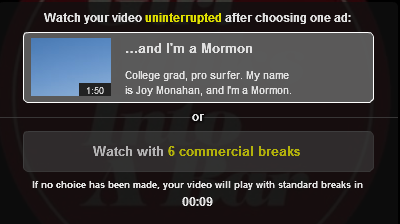Via Sullivan, a constitutional analysis of the Stop Online Piracy Act:
To begin with, the bills represent an unprecedented, legally sanctioned assault on the Internet’s critical technical infrastructure. Based upon nothing more than an application by a federal prosecutor alleging that a foreign website is “dedicated to infringing activities,” Protect IP authorizes courts to order all U.S. Internet service providers, domain name registries, domain name registrars, and operators of domain name servers—a category that includes hundreds of thousands of small and medium-sized businesses, colleges, universities, nonprofit organizations, and the like—to take steps to prevent the offending site’s domain name from translating to the correct Internet protocol address.
This not only violates basic principles of due process by depriving persons of property without a fair hearing and a reasonable opportunity to be heard, it also constitutes an unconstitutional abridgement of the freedom of speech protected by the First Amendment. The Supreme Court has made it abundantly clear that governmental action suppressing speech, if taken prior to an adversary proceeding and subsequent judicial determination that the speech in question is unlawful, is a presumptively unconstitutional “prior restraint.” In other words, it is the “most serious and the least tolerable infringement on First Amendment rights,” permissible only in the narrowest range of circumstances. The Constitution requires a court “to make a final determination” that the material in question is unlawful “after an adversary hearing before the material is completely removed from circulation.”
(Emphasis in quoted blog post; references removed.)
I've already written to my representative in Congress; have you written to yours?
Given my activities yesterday (i.e., going through airport security), I found the latest interview with Bruce Schneier timely and once again correct:
As we came by the checkpoint line, Schneier described one of these aspects: the ease with which people can pass through airport security with fake boarding passes. First, scan an old boarding pass, he said—more loudly than necessary, it seemed to me. Alter it with Photoshop, then print the result with a laser printer. In his hand was an example, complete with the little squiggle the T.S.A. agent had drawn on it to indicate that it had been checked. “Feeling safer?” he asked.
To a large number of security analysts, [the billions we've spent on security theater] makes no sense. The vast cost is not worth the infinitesimal benefit. Not only has the actual threat from terror been exaggerated, they say, but the great bulk of the post-9/11 measures to contain it are little more than what Schneier mocks as “security theater”: actions that accomplish nothing but are designed to make the government look like it is on the job. In fact, the continuing expenditure on security may actually have made the United States less safe.
Yes. We spend money on high-tech, whiz-bang solutions to human-intelligence problems. The attack on 9/11 can't happen again in the U.S., not because of full-body scanners at airports, but because of reinforced cockpit doors and vigilant passengers. Should we let just anyone board a transport airplane without a security check[1]? No, of course not; but we should make the checks effective, rather than flamboyant.
Security, however, tends to ratchet up, because no one wants to be the guy who relaxed security right before an attack. And we know an attack will happen someday; nihilists are not easily dissuaded from their crimes. Still, one can hope.
The T-Mobile acquisition is dead, dead, dead:
AT&T is ending its $39 billion bid to buy T-Mobile USA, citing fierce government objections.
"From the first day that this deal was announced, we have warned regulators, lawmakers, and consumers of the dangerous consequences of this merger," said Parul P. Desai, policy counsel for Consumers Union, according to its website The Consumerist. "Regulators clearly saw through AT&T's claims of better service and saw what we saw - a combined AT&T/T-Mobile would mean higher prices and fewer choices for consumers. It would mean a wireless market dominated by a powerful duopoly with little incentive to compete with other carriers."
In related news, Kim Jong Il is also dead, leading to the joke that god let Havel and Hitchens pick the third. (Hitch would actually be horrified by the suggestion.)
Jon Bon Jovi, however, remains alive.
Swamped with client work, getting ready for Xmas, traveling hither and yon—tomorrow, at least, will be quieter.
Derp. One year ago yesterday I finished my MBA. It doesn't seem like a full year...except when it doesn't seem like only one year.
So I thought I'd take another look at Sebastian Gutierrez' film Girl Walks Into a Bar the other day. But before the film started I saw this:

Not knowing what to make of these options, I chose the two minutes of proselytizing and went to make my lunch. When I got back, the movie was on its way without interruptions, as promised.
What the LDS church hopes to accomplish through this PR campaign escapes me for the moment.
If you don't know Hyperbole and a Half, set aside an hour and read every one of Allie Brosh's posts. Since it's December, though, start with this one:
By the time I was done reinventing her, Mary carried a cane, walked with an exaggerated limp and was completely covered in BandAids.

She was also blind.
I started reading the blog last night when I got home for dinner and finally stopped 90 minutes later because my face hurt from laughing.
Just now, going into hour 32 of the (technically) longest day of my life, I noticed that the blog's comment view feature isn't working. This is Case #2869 in FogBugz, and will be fixed as soon as possible.
Not tonight, though. Just like Saturday, my goal is only to make it to 9pm. If I can do that, I will defeat jet lag in one stroke. I must not fail. Sleep deprivation leads to pointless blog entries, and we can't have that, can we?
The new feature I mentioned this morning is done. Now, in addition to the "where was this posted" button on the footer, you will notice the entry's time zone. Each entry can have its own time zone—in addition to the site-wide default.
I still have to fix a couple of things related to this change, like the fact that the date headers ("Thursday 24 November 2011," just above this entry) are on UTC rather than local time. But going forward (and going backward if I ever get supremely bored), you can now see the local time wherever I was when I posted.
Incidentally, if you want to bring the tzinfo database to your .NET application, I have licensing terms.
I'm rushing to get a major change to the resurrected dasBlog code done before I leave tomorrow (because I don't want to push code from anywhere I can't recover). Meanwhile, here's a timely NSFW comic for your holiday.